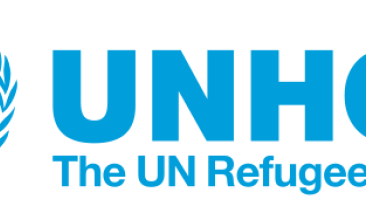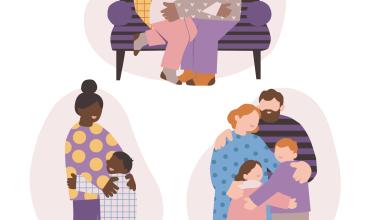Month 13 is the first month when the sponsors’ legal responsibility comes to an end and the sponsored newcomers become independent. To prepare the newcomers for the post-sponsorship period, the sponsors should facilitate the transition to self-sufficiency by the end of month 12.
When should you start preparing for the post-sponsorship period?
Sponsors can begin preparing newcomers for the end of the sponsorship period, as soon as possible, and no later than month 9.
In month 9, sponsors may communicate to the newcomers that the sponsorship period will end in 3 months, and that they are not obligated to provide financial and settlement support beyond month 12.
Sponsors may conduct a needs assessment to determine what needs to be done before the sponsorship period concludes, in preparation for the transition to the post-sponsorship period. The assessment should be conducted together with the newcomers to ensure that there are no pending needs or service gaps at the end of month 12.
Some transition considerations are:
- Housing status (Do the newcomers need to move to another home or city? Do they know how to pay rent and other household bills?)
- Financial status (Are they employed or do they need to find a job or apply for social assistance? Do they know how to budget and transfer money electronically?)
- Settlement status (Do they need to find a new school for their children? Do they know what they are getting through their provincial health coverage?)
What is the role of sponsors in the transition period?
Sponsors should work to empower the newcomers to become independent throughout their journey.
Sponsors should provide newcomers help with:
- relieving fears of abandonment or uncertainty about the future;
- connecting with the community (activities, community groups, support services, etc.); and,
- setting-up a meeting to discuss their concerns, responding to questions, and creating a transition plan.
Use the Month 13 Planning Checklist before the end of month 12 to ensure that newcomers have the information they need as well as the necessary skills, knowledge, and services for the post-sponsorship period.
Sponsors should provide Information to the newcomers about transitioning to the post-sponsorship period that includes, but is not limited to:
- social assistance (including eligibility and how to apply);
- eligibility for subsidized housing (including when and how to apply);
- services offered by local settlement agencies (including job search services and resources);
- taxes (including how and when to apply, assistance available when completing tax returns and entitlement for tax benefits);
- transportation allowances;
- educational programs and subsidies offered by local schools and colleges for further education (including further ESL); and,
- changes in healthcare coverage (end of IFHP coverage).
What services are available, and steps can you take, if the newcomers are not self-sufficient?
It is important for sponsors to not feel discouraged if the sponsored newcomers are not self-sufficient by the end of month 12. It’s not realistic to expect that newcomers will be fully integrated into Canadian society by the end of month 12. Integration is a long-term process which can take many years and is affected by a number of factors. Sponsors are the start of the integration process.
If newcomers are not self-sufficient by the end of month 12, they can apply for the following services and assistance to help them reach independence:
- Social assistance and welfare support
- Subsidized housing
- Further ESL classes
- Employment training support
- Community activities and social support groups
Sponsors may see what services are available to newcomers in their province and municipality, as some services may be restricted or additional services may be available based on location.
What kind of relationship should sponsoring groups have with the newcomers in the post-sponsorship period?
Sponsors may continue providing financial and/or settlement support after month 12 for PSR and BVOR newcomers at their discretion, but they are not obligated to do so. If sponsors decide to continue providing financial support, they must research how this support may affect any social assistance or income assistance the newcomers may be receiving from the provincial government. Failing to do that, may result in them not being eligible for social assistance, or having their payments reduced.
Sponsors may also wish to keep in contact with their sponsored newcomers to see if they could be of any assistance in the post-sponsorship period. Sponsors should discuss the post-sponsorship relationship with the newcomers, to respect the newcomers’ right to autonomy.
Sponsors may ask the newcomers:
- Would you like us to continue to be involved and how?
- What do you think about us continuing a friendship with you?

